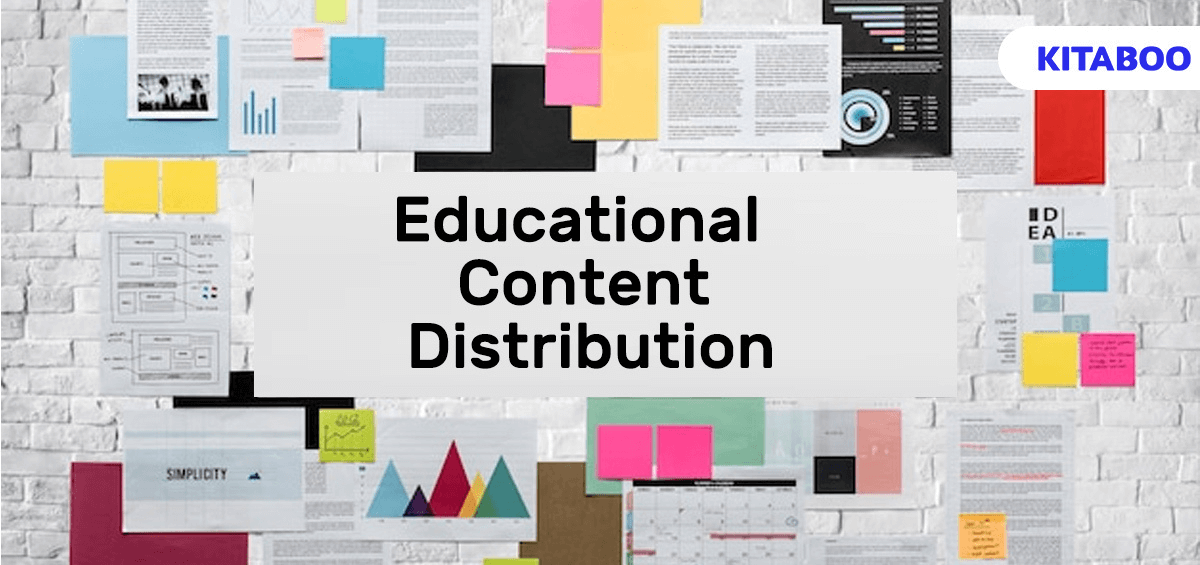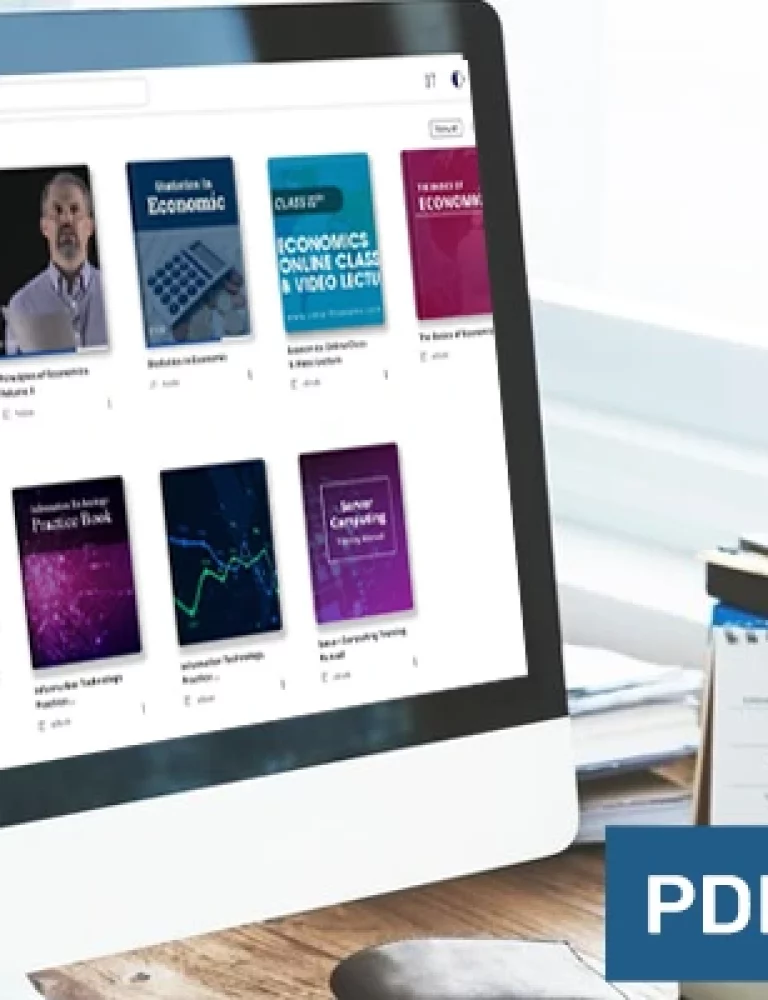Educational content distribution is all about extending the reach of knowledge beyond the classroom, enabling access for learners across the globe. Its significance is paramount, as it promotes equitable education access and empowers individuals worldwide.
Today’s cutting-edge technologies have brought about a notable transformation in how educational content is disseminated. Digital platforms, interactive apps, and virtual classrooms are making learning easier and accessible to anyone with an internet connection.
Join us as we embark on a journey to explore the profound impact of educational content distribution and how it’s reshaping the way we learn, teach, and connect in our increasingly interconnected world.
Table of Contents
I. The Evolution of Educational Content Distribution
II. How Digital Textbook Platforms Impact Educational Content Distribution
- Bridging the Educational Divide
- Personalization and Adaptation
- Multimedia Integration
- Collaborative Learning
- Data-Driven Learning
- Continuous Improvement
- Reduced Paper Usage
- Resource Efficiency
III. Challenges to Digital Educational Content Distribution
IV. The Future of Educational Content Distribution
V. The Takeaway
The Evolution of Educational Content Distribution
Educational content distribution has significantly evolved over the years. Traditional methods primarily involved printed textbooks and localized learning materials. While these resources undoubtedly held value, they were bound by geographic limitations, production costs, and restricted accessibility.
The inefficiencies of traditional distribution were apparent. Students in remote regions often had limited access to the latest materials, and schools bore the burden of costly, periodic textbook updates.
However, the digital age ushered in a transformation of epic proportions. Ebooks, online educational resources, and digital textbook platforms emerged as game-changers. The advent of eBooks revolutionized how students could access materials, eliminating geographical constraints and providing instant updates.
Online resources and digital platforms further democratized education, making a vast array of content available with the tap of a screen. Around 63% of high school students in the US use digital learning tools at school every day.
These innovations paved the way for a more inclusive, efficient, cost-effective educational landscape with global access and up-to-date information.
How Digital Textbook Platforms Impact Educational Content Distribution
Digital textbook platforms have emerged as pivotal catalysts in the ongoing transformation of education in our digital age. Here are the myriad benefits they bring to educational content distribution:
Bridging the Educational Divide
One of the most significant contributions of digital textbook platforms is their ability to bridge the educational divide. Traditional textbooks are often limited by geographical constraints and resource scarcity in remote areas.
However, digital platforms enable students worldwide to access the same high-quality educational content. This equalization of access helps reduce disparities in educational opportunities, making it a powerful tool for promoting inclusive learning.
Personalization and Adaptation
Digital textbook platforms offer a level of personalization that was once unimaginable. KITABOO, for example, provides features that allow educators to adapt content to suit different learning styles, pacing, and abilities.
Students can progress at their own pace with adaptive content that adjusts to their individual needs. This personalization empowers every learner, ensuring that the content is not one-size-fits-all but tailored to maximize understanding and retention.
Multimedia Integration
Digital textbook platforms integrate multimedia elements seamlessly, enhancing the learning experience. KITABOO’s eBooks include interactive elements like videos, animations, interactive quizzes, and other multimedia.
This multimedia approach caters to diverse learning preferences and offers a more engaging and interactive way of delivering educational content, making learning both fun and effective.
Collaborative Learning
Digital textbook platforms facilitate collaborative learning in unprecedented ways. They enable students to connect with peers, share notes, and engage in discussions, breaking down the barriers of geographical distance. KITABOO offers collaborative tools that support group learning, making education a more interactive and social experience, even in virtual settings.
Data-Driven Learning
Educational content distribution on digital platforms like KITABOO allows for in-depth tracking and analysis of student progress. Teachers and institutions can collect valuable data on how students interact with the content, which areas they find challenging, and where they excel.
This data-driven approach enables educators to make informed decisions about curriculum adjustments and personalized interventions, ensuring every student receives the support they need.
Continuous Improvement
The flexibility of digital textbook platforms like KITABOO enables the continuous improvement of educational content. Unlike traditional printed textbooks that require lengthy publication cycles, digital platforms allow for real-time updates. This ensures educational content remains current, relevant, and aligned with the latest academic standards and trends.
Reduced Paper Usage
One of the significant environmental advantages of digital textbook platforms is the reduction in paper usage. Traditional textbooks often involve significant printing and distribution costs and contribute to deforestation.
KITABOO and similar platforms contribute to a more sustainable approach to education by eliminating the need for printed materials.
Resource Efficiency
Digital platforms streamline the educational content distribution process. KITABOO, for example, allows educators to efficiently manage and distribute content to a wide range of devices, reducing the administrative burden. It also eliminates the need for physical storage of textbooks, leading to space and cost savings for educational institutions.
Challenges to Digital Educational Content Distribution
Internet Connectivity
While digital content distribution offers numerous advantages, it is not without its challenges. Access to a reliable internet connection remains a barrier in some regions.
KITABOO addresses this challenge by offering offline access options. This allows students to download content for offline use, ensuring that connectivity issues do not hinder education.
Security and Privacy
Protecting sensitive educational data is of paramount concern. KITABOO employs robust security measures, such as physical access control, encryption, restricted access, threat monitoring, etc, to safeguard user information and educational content. This ensures that the privacy and confidentiality of both students and educators are protected.
The Future of Educational Content Distribution
Having explored the benefits and challenges of digital educational content distribution, we can now turn our gaze toward the future.
The global e-learning market is projected to reach $840.11 billion by 2030, growing at a CAGR of 17.5% from 2021 to 2030. But this is just a statistic. The growth in technology is even more exciting.
Artificial Intelligence (AI) and machine learning are set to personalize learning experiences further. These technologies will analyze individual student data to create tailored educational content, ensuring that each learner receives precisely what they need for optimal understanding and engagement.
Similarly, Augmented Reality (AR) and Virtual Reality (VR) are poised to reshape the learning landscape. For instance, AR can make textbooks come alive with 3D models, making studying more fun and engaging.
On the other hand, VR offers an immersive experience by transporting learners into meticulously crafted digital environments. When donning a VR headset, learners find themselves enveloped in computer-generated surroundings akin to video games but with an educational twist.
The transformative potential of these innovations is set to further enhance personalization, interactivity, and engagement in education, pushing the boundaries of what’s possible in the world of learning.
Also Read: instructional content distribution
The Takeaway
There is no doubt that technology is changing the game for educational content distribution. Digital textbook platforms like KITABOO are shattering traditional boundaries, offering inclusive, personalized learning experiences that can extend from the classroom to the farthest corners of the world.
They introduce multimedia, foster collaboration, and harness valuable data insights, making education globally engaging.
While challenges like improving internet access and ensuring security persist, efforts can be made to mitigate them. The future holds even more promise, with AI, AR, and VR making education accessible and exciting worldwide. This evolution is reshaping the way we all learn and teach.
To learn more, connect with us now!
To know more, write to us at KITABOO@hurix.com.
Suggested Reads:
Discover How An Ebook Conversion, Publishing & Distribution Platform Can Help You
Kitaboo is a cloud-based content platform to create-publish & securely distribute interactive mobile-ready ebooks.
You May Also Like








